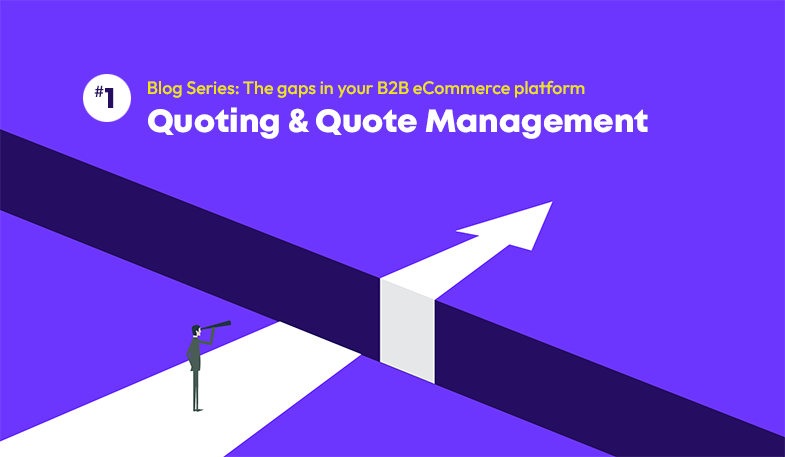Is Your Legacy Platform Hurting Your Business?

With all of the profound changes that have come to transform eCommerce, a legacy platform may be the component of your online business that is holding you back. This is because today there are virtually limitless options to meet your eCommerce site needs, and it is even possible to build your own eCommerce platform from the ground up.
Businesses with a legacy platform, however, must restrict and limit their site in order to fit designated specifications that are becoming increasingly outdated.
Though it may be intimidating to think about replacing your legacy platform, it is necessary in order to make the most of your business eCommerce operations. In fact, in order to compete in this market, it is clear that the legacy platform needs to be replaced with a platform that is more optimized to perform with the latest technological developments, as well as one that is more adapted to the current marketplace.
So how is your legacy platform hurting your business?
Stifled Innovation
If your platform is not consistently adapting to the changes in the tech developments that are available to them, then it is limiting your chances to capture market share among your competitors who are keeping up with the latest developments.
You may have impressive ideas for your site to offer the best eCommerce experience, but if your platform cannot accommodate them, your ideas won’t ever materialize. Your legacy platform may have been built before there was even the possibility for things you may now want, such as QR readers and mobile shopping.
Today, however, those are essentially must-haves for retailers.
Your platform sets the parameters for the extent of your innovation. Therefore, the older it is, the less innovation possibilities you have.
Limited Marketing
As stated, there have been many innovations that have come to shape eCommerce. With that, the marketing innovations that have resulted in new ways of promoting your business are critically important to include in your eCommerce platform.
In fact, the marketing tools available today, such as promotion engines and social media integrations, have made it so that the marketing itself is more comprehensive yet also much more simplified to the user.
For example, in the past, a marketing team had to spend a lot of money and time with market research to identify who their target customers were. Today, the marketing team is able to utilize marketing tools like social media where people have self-identified as the target markets and elected to receive marketing material from the company, while also providing key consumer information.
Because of the value to both the business and the consumers, it has become all but a requirement for a retailer to have a social media presence in order to facilitate meaningful interaction with their customers.
If your legacy platform was built without today’s marketing capabilities in mind, it is holding you back from these key interactions.
Limited View of the Customer
B2C relationships are changing to accommodate the technology that is available to them. As such, the way retailers present themselves to customers must also change.
There is now a much greater emphasis on a multi-channel view of the customer and many legacy platforms cannot adapt to this change. eCommerce businesses that do not offer features such as a mobile site or app cannot compete on the same level as those who can.
Legacy platforms simply do not have the same capabilities that newer platforms do. If your business wishes to take advantage of the most advanced customer intelligence available, add-ons and plugs to your platform won’t cut it.
The legacy platform should be replaced to allow for one that is designed with the new B2C dynamic in mind.
Limited Integration Capabilities
Integration capabilities are essential to ensuring that your company is run in the most effective way possible. Throughout the existence of your eCommerce business, you may need to find a way to merge your favorite existing software with your eCommerce platform.
However, as your legacy platform ages, there will be fewer possibilities to integrate external software with your platform. In some cases, you may even find that it is impossible to integrate any of the newest software with your platform.
By continuing to use your legacy platform, you effectively age-out of considerations for the most recent integrations. This is especially true for competitive eCommerce businesses because the platform is so essential to remaining competitive and offering your customers what they want.
It is not as though conditions for legacy platforms will get better as time goes on either. Your legacy platform will continue to be a barrier for as long as it exists.
Visibly Lacking
If your site is underwhelming, and lacking in speed and design features customers want, there is definitely a problem. There should not be any visible differences between you and your competitor that will highlight inadequacies.
Your legacy platform may be being used to its fullest potential, and if your customers still are not satisfied, the platform is no longer doing its job.
Even if the site is doing all that you expect it to, it is the customers who determine its true value.
eCommerce customers are frequently exposed to some of the most current and impressive eCommerce sites. This creates a situation where the customers who have been exposed to a few great sites then have higher expectations for similar sites.
If your site is failing to meet customer expectations, you can be sure that the customers will go to the sites that do. If from the start, your site is relatively unimpressive and overall lacking, you will also have a hard time obtaining new customers.
Conclusion
Ultimately, your legacy platform is costing you money and forcing you to miss out on key opportunities. There will without a doubt be a time when you will need to switch platforms, so why not embrace it now?
By sticking with your legacy platform, you are only postponing the inevitable and opening your business up to increased risk of all-around platform failure.
Resource Center

A new blog series about the critical eCommerce capabilities missing in most eCommerce platforms for B2B companies. #1: Quoting & Sales Support

A closer look from the Ultra perspective on what we really mean when we talk about headless commerce and why it may not be right for every company.

Davis Art is now the only online K-12 publisher dedicated to the arts, creating top-notch curriculum and resources for art educators nationwide, all from the Ultra Commerce platform.
